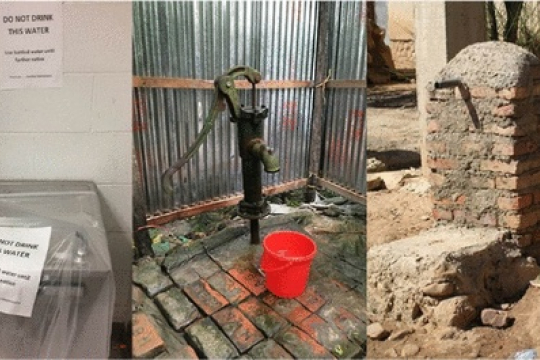Abstract
Water supply interruptions contribute to household water insecurity. Unpredictable interruptions may particularly exacerbate water insecurity, as uncertainty limits households’ ability to optimize water collection and storage or to modify other coping behaviors. This study used regression models of survey data from 2873 households across 10 sites in 9 middle-income countries to assess whether water supply interruptions and the predictability of interruptions were related to composite indicators of stressful behaviors and emotional distress. More frequent water service interruptions were associated with more frequent emotional distress (β = 0.49, SE = 0.05, P < 0.001) and stressful behaviors (β = 0.39, SE = 0.06, P < 0.001). Among households that experienced interruptions, predictability mitigated these respective relationships by approximately 25 and 50%. Where the provision of continuous water supplies is challenged by climate change, population growth, and poor management, water service providers may be able to mitigate some psychosocial consequences of intermittency through scheduled intermittency and communication about water supply interruptions. Service providers unable to supply continuous water should optimize intermittent water delivery to reduce negative impacts on users, and global monitoring regimes should account for intermittency and predictability in post-2030 water service metrics to better reflect household water insecurity experiences.
KEYWORDS:

